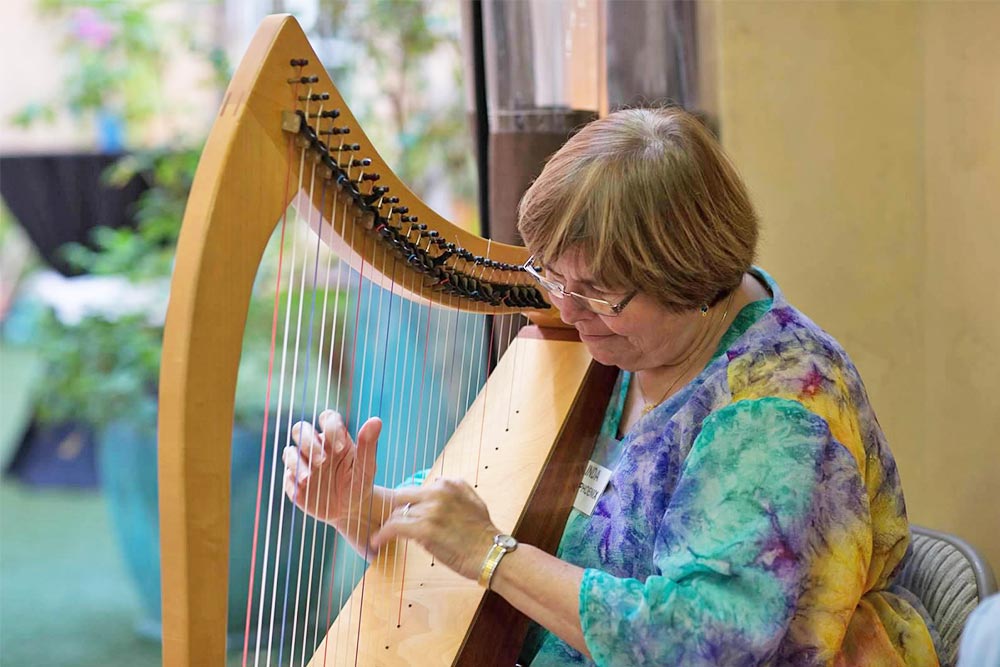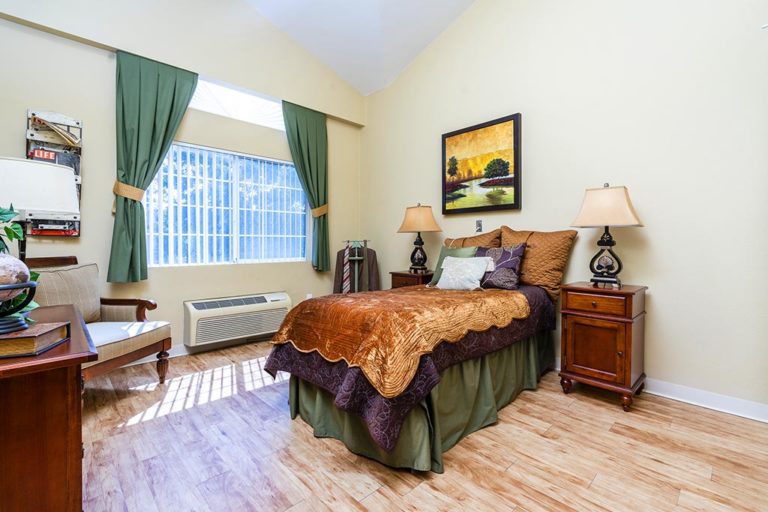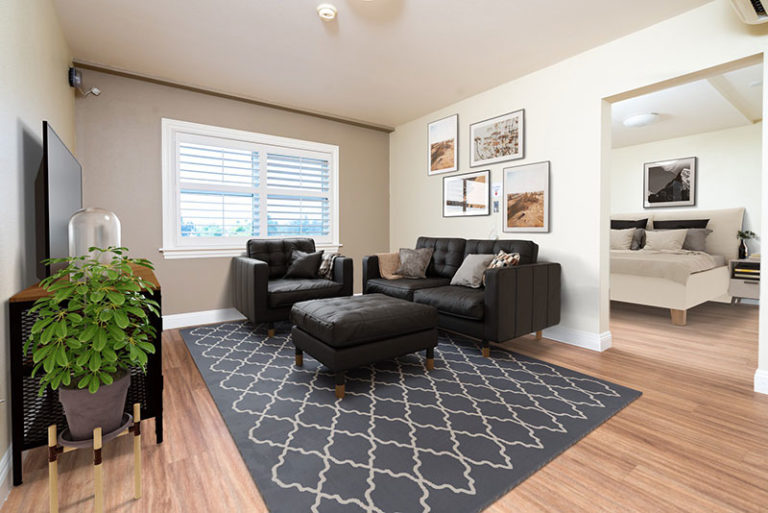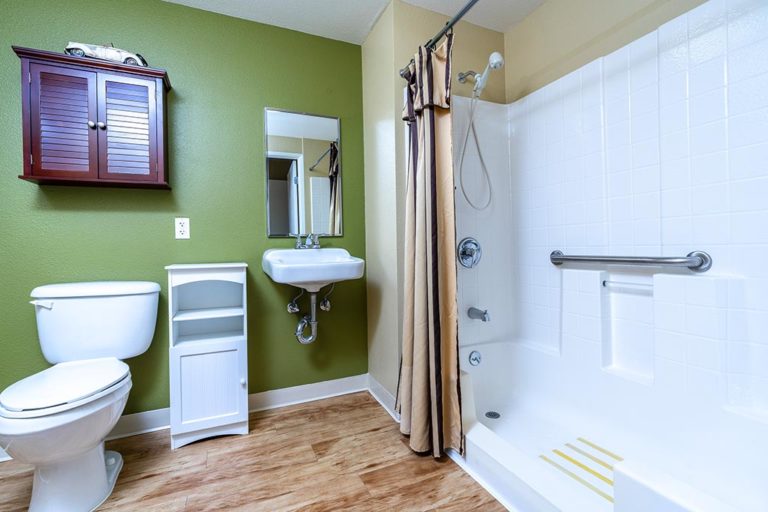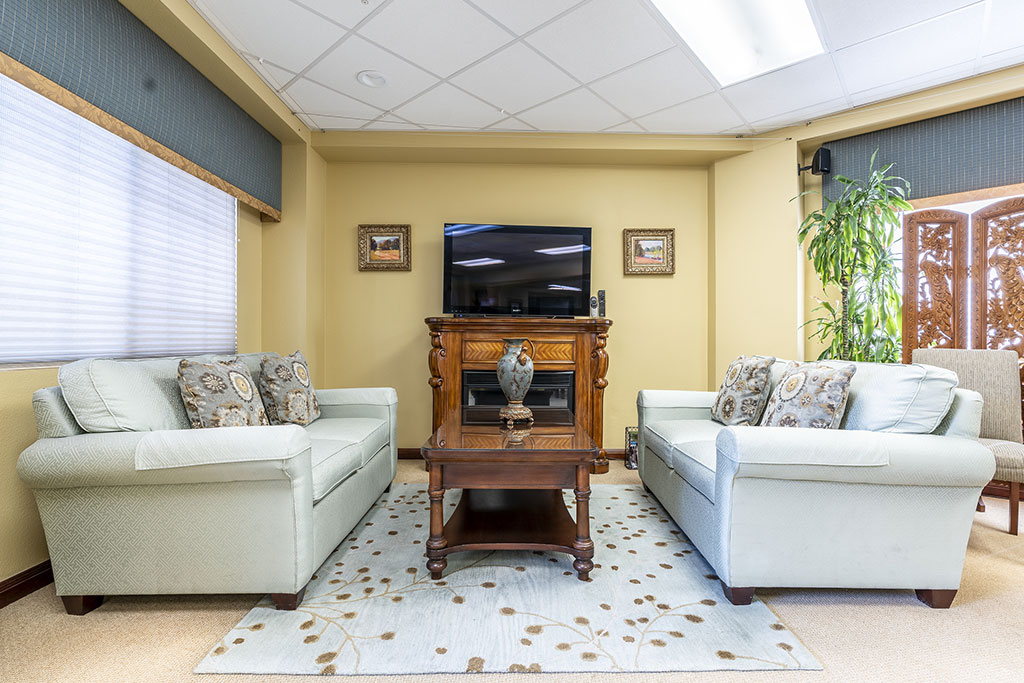Dementia Care San Diego
Dementia Care & Memory Care Facility & Community


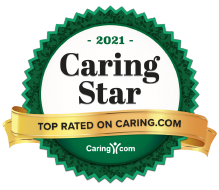


Family Facility

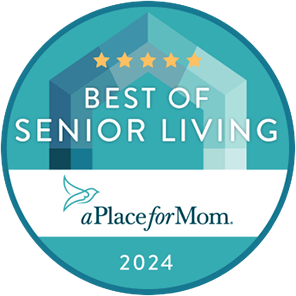

in San Diego
Stellar Care understands that caring for those with progressing dementia comes with its own set of challenges and care tasks. It is our belief that our residents deserve personalized care and support, and to live a life with dignity and purpose.
Trained Caregivers
Our dementia care caregivers are trained to provide assistance with Activities of Daily Living, or ADLs.
By ensuring that these daily needs are met, often with abundant encouragement, reassurance, and redirection, our residents are better able to enjoy their daily routine comfortably.

Dementia Care Activities of Daily Living
- Dressing & Grooming Assistance
- Escorts (private guidance to and from activities & meals)
- Incontinence Care
- Transfer Assistance
- Behavior Reminders
- Diabetic Care
- Medication Management
- Bathing Assistance
Dementia Care Nutritious
Homemade Meals
Stellar Care Dementia Care includes three nutritious homemade meals every day.
Our menus feature delicious soups made from scratch, salads and entrees using seasonal ingredients.


Options for those with diabetes, dietary preferences, and religious observances are available as well.
We also offer snacks and hydration available throughout the day and hydration stations with filtered and flavored water are available throughout the community.
Dementia Care Activities
Stellar Care prides itself on having a full schedule of activities for residents at various levels of their dementia.
Our Activities staff offers tailored activities for residents to engage in socialization and interaction to stimulate the mind and the body.
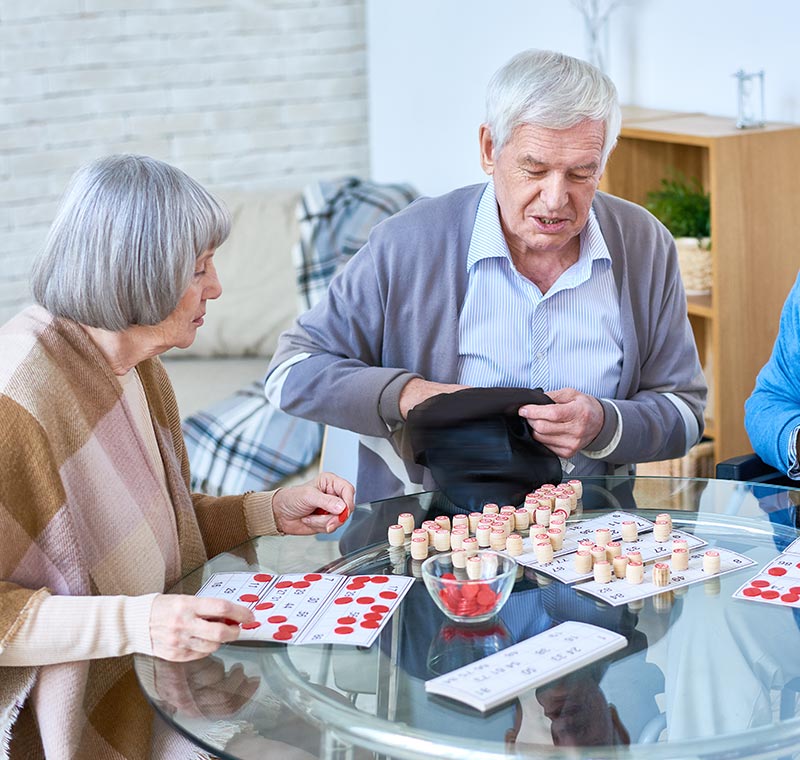

Dementia Care Trips in San Diego
Stellar Care outings are wildly popular with our residents and often include ice cream trips, drives to the beach, and visits to some of San Diego’s most popular sights such as Balboa Park, Seaport Village, and Old Town San Diego.
Some of our residents’ other favorite activities include:
Dementia Care Activities include:
- Memories in the Making Art Class
- Musical Guests
- Sensory Adventures
- Dominoes
- Daily News Updates
- Master Gardening Program with UCSD
- Casino Card Games
- Walking Club
- Documentary + Movie Discussions
- Stretching & Fitness Classes
The Dementia Umbrella
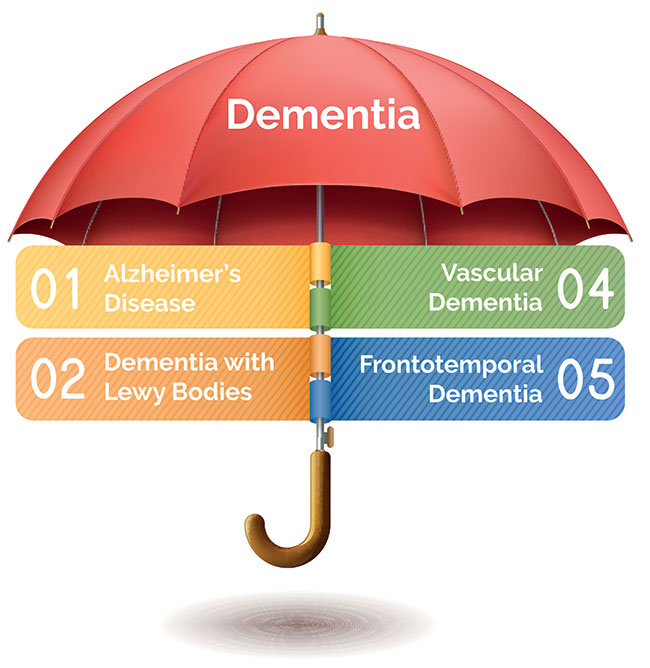
Some people with frontotemporal dementia have dramatic changes in their personality that vary greatly from their natural disposition. They may become impulsive or emotionally indifferent, while others lose the ability to use language properly.
While these descriptions may be the most common forms and categories of dementia there are over 100 different types that can affect people in the aging population. Our caregivers and staff use the multitude of tools at our disposal to take care and enrich the lives of our residents.
Stellar Care is a non-medical facility. While we are experienced & specially trained in caring for those living with various Dementias, if you are concerned about a loved one, you should seek professional medical advice.
What is Dementia?
Dementia is the classification for any condition that changes an individual’s memory, thinking or reasoning.

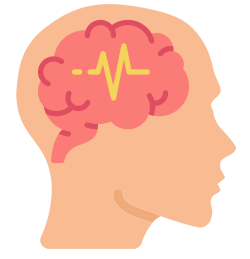
What is Alzheimer’s Disease?
Alzheimer’s disease is the most common cause of dementia. As a progressive brain disease, it will get worse over time. Scientists believe the disease damages and kills nerve cells in various structures of the brain including plaques and tangles. Vascular dementia, frontotemporal, and Dementia with Lewy bodies are other common causes of Dementia.
What is Vascular Dementia?
Vascular dementia is caused by reduced blood flow to the brain and a reduction in vital nutrients. Symptoms often include a decline in thinking skills. A sudden change, such as a stroke, may be the cause of a major blockage or reduced blood flow. Vascular dementia is the second most common cause of dementia after Alzheimer’s disease.
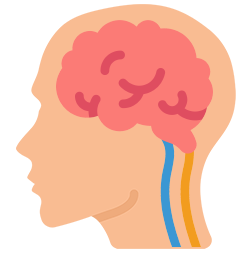
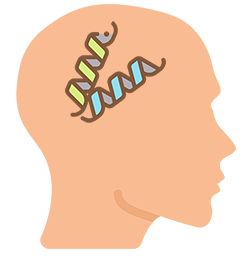
What is Dementia with Lewy Bodies?
What is Dementia with Lewy Bodies is another type of progressive dementia where an excess of protein damages brain cells. Warning signs can include hallucinations and sleep problems. related to buildup of a protein called alpha-synuclein that damages brain cells.
What is Frontotemporal Dementia (FTD) ?
Frontotemporal dementia (FTD) is not just one condition, but multiple disorders leading to deterioration. Cell degeneration in the frontal and temporal lobes can lead to personality changes varying extremely from the person’s natural disposition. It can also cause degeneration in conversational situations, and they may become impulsive or emotionally detached.
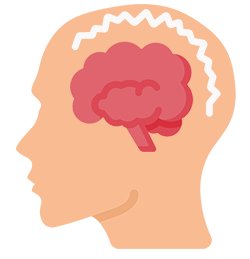
Source: Alzheimer’s Association
The terms “dementia” & “Alzheimer’s” are usually used interchangeably, however, in the industry we know that not only are there very important distinctions between the two but there are additional important distinctions between the over 100+ types of dementia that someone can be diagnosed with.
Types of Dementia and Dementia-Related Diseases
Frequently Asked Questions About Dementia Care
Many of our residents are already receiving nearly 24 hour care prior to moving in. The difference being that this care is being provided by family members at home. Often these family members don’t have the tools or training to care for someone with Alzheimer’s or dementia, through no fault of their own. A community like Stellar Care can be a great addition to the care team for your loved one. With tailored care, Stellar Care offers a secure community staffed 24 hours a day. Our Activity programs run from about 8 AM-8PM daily. Residents are checked on gently and frequently throughout the night to make sure they’re not in need of assistance. We encourage the residents to come out of their rooms during the day to participate in activities but if they aren’t up to it or don’t feel like it they are routinely checked on throughout the day as well.
Most patients with dementia will need more care than their families can provide. Families have several options: live-in or home care, adult day centers, hospice care, assisted living facilities, and nursing homes. The option that will work for you depends on your needs and the availability of options.
Dementia care makes life more comfortable and safe for someone living with dementia, which can be difficult for the sufferer. They can improve their quality of life, social life, care for their physical needs, and activities specific to their needs with the right care. Each dementia patient requires different needs and should be assessed by a professional, but the ultimate goal of dementia is to allow dementia patients to thrive with love, respect, and care.
If a person’s dementia has progressed to the point where they require more care and support than you can provide, they may need to be placed in a care facility. They may require 24-hour care at this point. Dementia is a progressive disease, which means that as time passes, the person suffering from it will require more care and support. As your loved one’s condition deteriorates, their requirements will grow, and despite your best efforts, you may not be able to fully meet their needs.
Dementia patients need a regimented schedule, flexibility, and attention. Furthermore, they need environmental safety to prevent falls or injury; they also need locks to keep them away from dangerous items and from leaving. They should also not have access to water alone or kitchen appliances. Most importantly, they need someone to monitor them at all times to prevent problems and help them when they forget something or become distracted.
Some dementia patients do better at home if they have constant supervision. However, if a family cannot provide chronic care, then a nursing home or assisted living facility makes a much better choice so they can receive the care they need. While more affordable to keep dementia parents at home, it’s not always the safest option or the best situation for the caregiver.
When someone requires dementia care, they may have difficulty with daily activities. Also, when they begin accidentally harming themselves or putting themselves in harm’s way, they need full-time care. Consider their emotional needs because they may be showing signs of emotional pain. Talk to your parent’s doctor as they will help to determine if additional care is needed.
While many drugs can help delay the progression of Alzheimer’s or dementia for a while, there is no cure. Alzheimer’s disease causes brain cell death and tissue loss, affecting memory, behavior, physiological functions, and other systems. It is a sickness that progresses to the point that the person is unable to safely care for himself. While there is no cure for Alzheimer’s disease, studies show that treatments and activities that excite the senses can help with behavior, mood, and agitation.
- Memory loss affecting daily abilities
- Difficulty doing familiar tasks
- Problems with speaking or remembering words
- Disorientation
- Impairment of judgment
- Problems with speculative thoughts
- Losing items
- Changes in behavior and mood
- Loss of interest in normal activities
- Changes in their personality
Although these names are frequently used interchangeably, they have very different meanings. Dementia is not a disease in and of itself. Instead, it’s an all-encompassing word, often known as an umbrella term, covering a wide range of symptoms. These symptoms impact a person’s capacity to carry out daily tasks independently.
Time alone will worsen dementia as the illness progresses, but other things can worse dementia too. Strokes, head trauma, poor diet, and a sedentary lifestyle can all make dementia worse. Watch for worsening signs as this can indicate they need more care.
Dementia starts with mild cognitive impairment before progressing to mild dementia, moderate dementia, and then severe dementia. Dementia patients will move through these stages at varying rates and with varying symptoms. No patient will progress at the same rate and need medical care to watch for signs.
Our Floor Plans
Our Amenities

Studios & Community

On-Site 24/7






Our Services
Memory Care
Club Stellar
Dining
Activities

A Memory Care Community
4518 54th Street • San Diego, CA 92115
Phone: (619) 287-2920
LICENSE #374603625
Copyright © Stellar Care | Website Development by blue media marketing, Inc.
